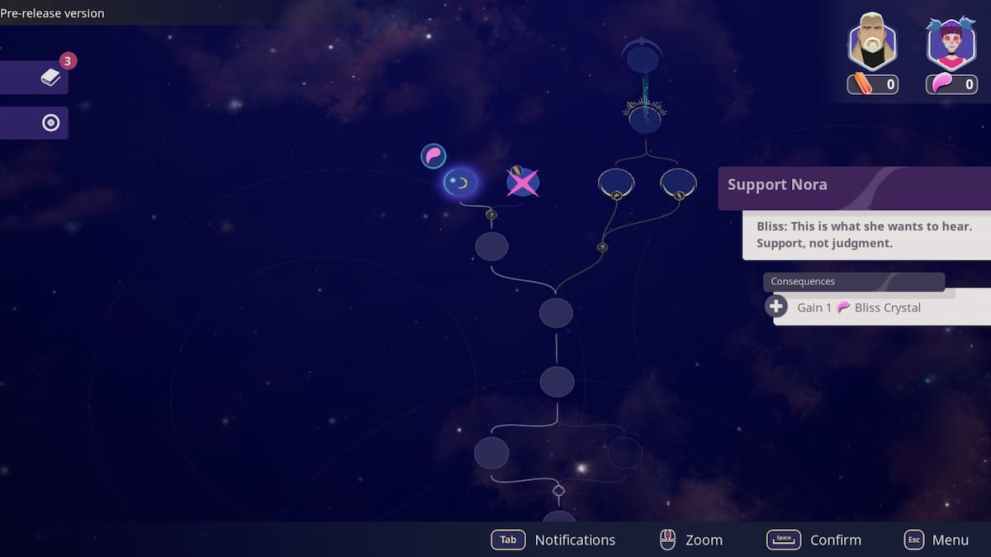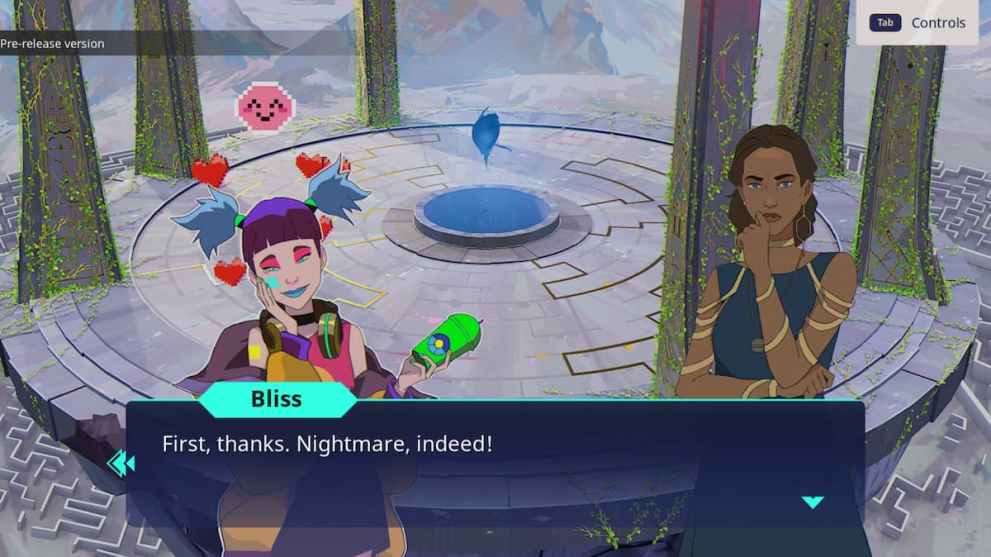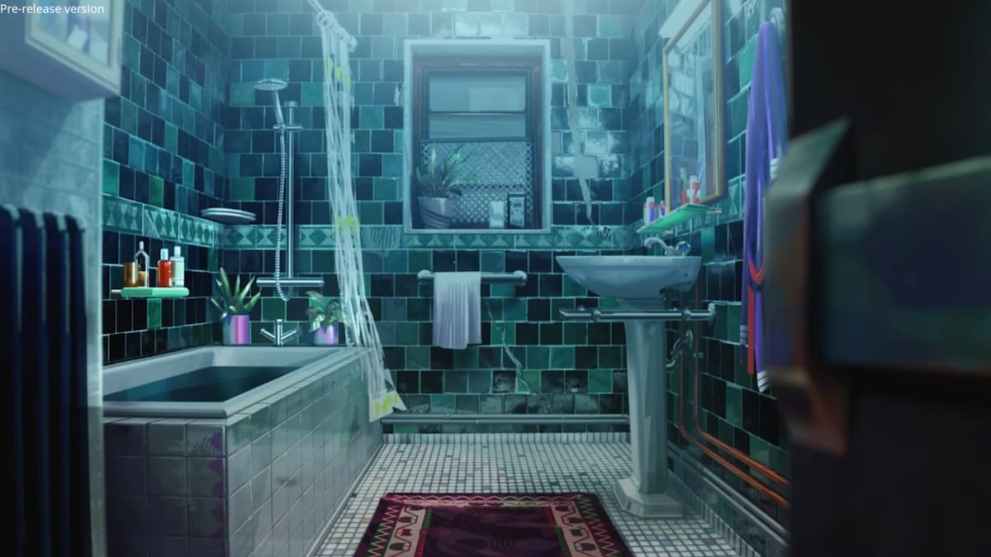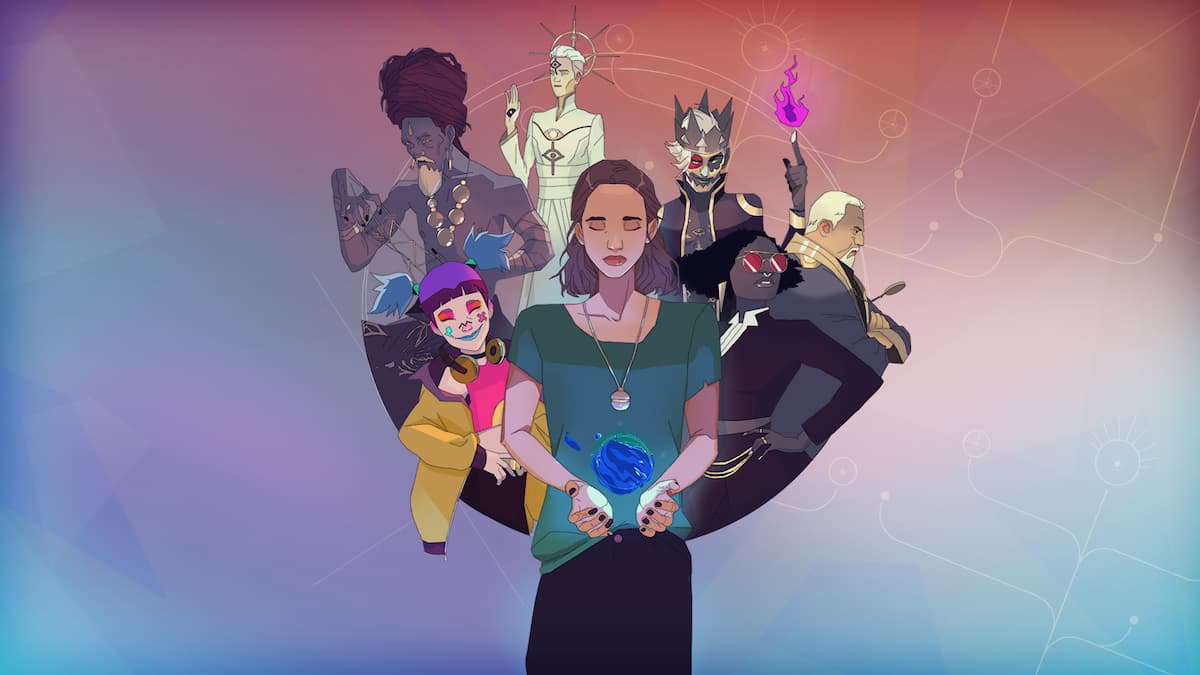Decision-making titles have continuously expanded in recent years, diving into different territories with RPG elements and QTE intervals. The same change can be seen with Harmony: The Fall of Reverie, as it brings the concept of logic into the classic pathway system of choice-based games.
Instead of unlocking various scenarios blindly, you’ll get a glimpse of the paths beforehand with the valuable gift of foresight. Considering my experience with these games, it’s refreshing to see something new added to the beloved genre, where players can plan out their actions and possibly get the ending they most desire.
At the story’s beginning, we are introduced to the main protagonist, Polly, who revisits her hometown of Atina after many years. She seeks to unravel the secrets behind her mother’s recent disappearance, despite their complicated relationship. But, just as Polly starts her case, she transports into an alternate dimension, Reverie.
Once you dive into Reverie, things really start to kick off as you discover the potent clairvoyant powers within you and the godlike beings known as “Aspirations.” Polly is no longer her former human self and transforms into “Harmony,” a goddess who can shape the destiny of two universes.
You’ll be able to unlock various pathways in the Augural timeline, similar to the flowcharts of Until Dawn and Detroit: Become Human. However, this system presents a unique twist of looking into the future, allowing players to hover over scenarios to view their effects. For instance, players can see which conversation topics certain characters will enjoy, differing from negative dialogue options that will lead to a more cynical pathway. You can also see the similarities between DON’T NOD’s other hit game, Life Is Strange, due to its handy rewind ability.

Each choice is relatively based on the personalities of the Aspirations: Glory, Bliss, Power, Chaos, Bond, and Truth. These characters are essentially the gods of the universe, who are incarnations of humanity’s yearnings, desires, and intelligence. You’ll often converse with them throughout the story as they ask for your help to fix the broken connection between the two worlds. Additionally, they will make a surprise appearance in the human world of Atina, offering suggestions of what your next decision should be.
Players will gain Crystals depending on the selected actions, which can be used to open blocked paths and objectives. These items will be marked with various Aspirations, including Bliss’ happy-go-lucky themed choices and Power’s forceful demands. Your decisions will also impact your relationships with the omnipotent beings, triggering storylines for specific characters.
I was astonished to see how intricate the Augural can be, given that many games with pathways have primarily followed the traditional system of a flowchart. Yet, in some cases, it can be pretty overwhelming with the different mechanics you’ll discover, in which the game consistently packs loads of information at a time. Specifically, players will need to comprehend a ton of terms to understand the complexity of the Augural.
Fortunately, Harmony: The Fall of Reverie features a Codex you can refer to, broken down into sections with the knowledge you’ll gradually acquire. There’s even more details you can bring to light in this selection, providing facts about characters, factions, and critical locations.
Aside from the informational Codex, I also found the ‘back’ button in conversations beneficial since most games generally don’t feature this option. So anytime I accidentally clicked on the next talking point or was confused about a specific term, I could rewind to get a better sense of what was happening. Furthermore, you can check back on all past conversations in the timeline to grasp the riveting story.

The Fall of Reverie’s dialogue scenes are pleasing to watch thanks to the fluid movements of characters, differing from the stand-still artwork you may have seen before. Therefore, rather than simply clicking through the chat, you can see their personality brought to life with each discussion. The only downside is the interruption of choosing a path in the Augural in-between scenes since it breaks up the conversation into small sections instead of letting it play out as a whole.
Although I don’t mind making less impactful decisions here and there, it can be tedious to pick a scenario every single time, especially when they prove ineffective. Still, the more significant moments make it all worth it, giving you the chance to strategize your next move. For example, players must decide whether or not they want to sacrifice a minor decision to reach a bigger objective. There’s also a few curveballs you’ll come across, like inevitable paths and keys to unlock a particular node, which adds more flair to Harmony’s tactical gameplay.
Out of all the elements in the Fall of Reverie, the artwork is where it truly shines, with its intricately detailed environments and vibrant colorwork. The cutscenes almost make you feel like you are watching an animated show, along with the game’s outstanding voice acting.

You can tell a lot of work went into the game, despite it only being a preview, so I can’t imagine what it will really be like once the full release rolls out.
Both universes showcase a diverse set of characters, each with its own distinct style and unique charm. While the Atina residents are often more relatable through their genuineness and humanity, the Aspirations of Reverie feature a more exaggerated version of emotions with their lively expressions. By mixing the two worlds, you’ll always be on your toes and never know what to expect next in this multiverse of madness.
So, if you are a massive lover of choice-based games, you should give Harmony: The Fall of Reverie a try. Although the lore can sometimes be mind-boggling, you can use the resources you have to get a better grip on it and unlock the endings you desire with Polly’s clairvoyance. It certainly changes the pace of decision-making with its strategic elements, enriching the genre further.













Updated: Jul 6, 2023 08:24 pm